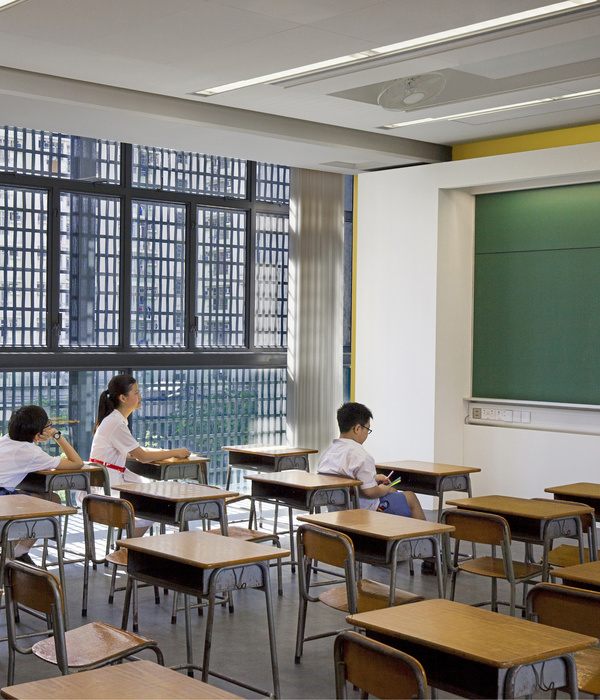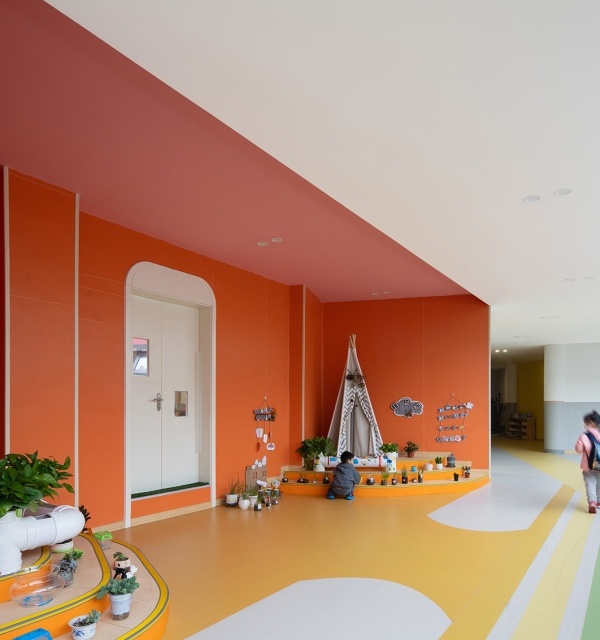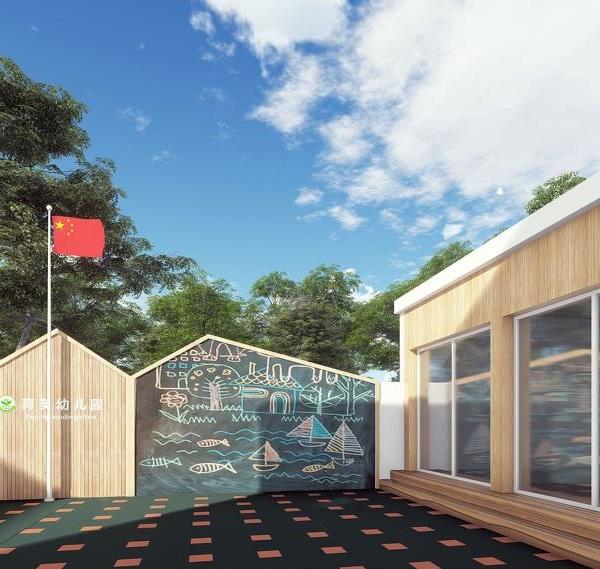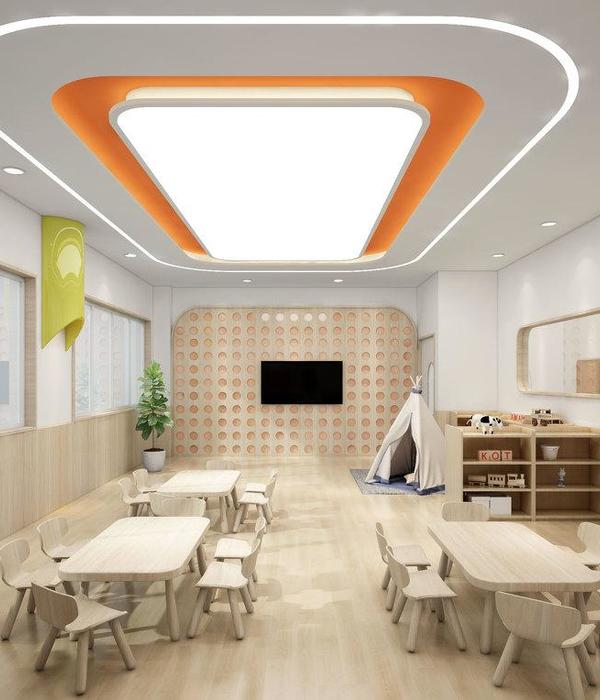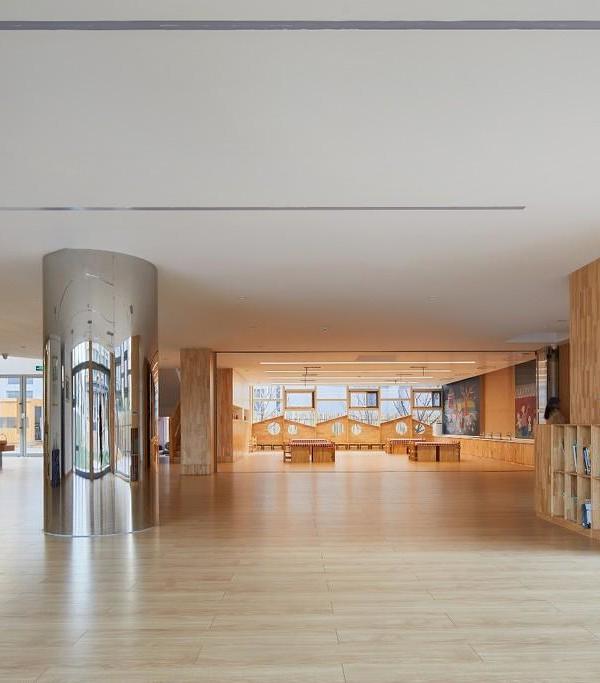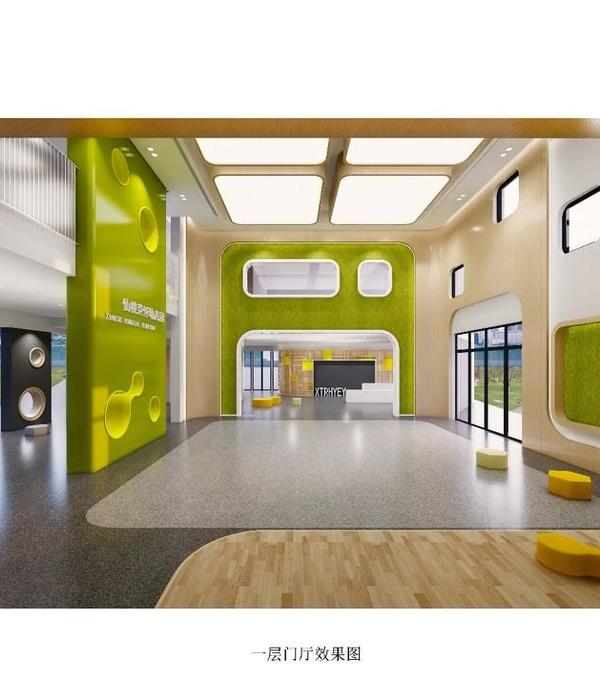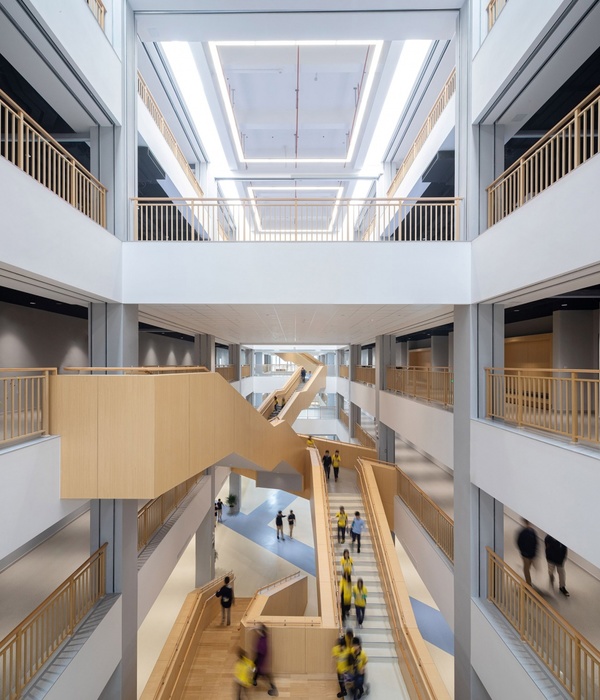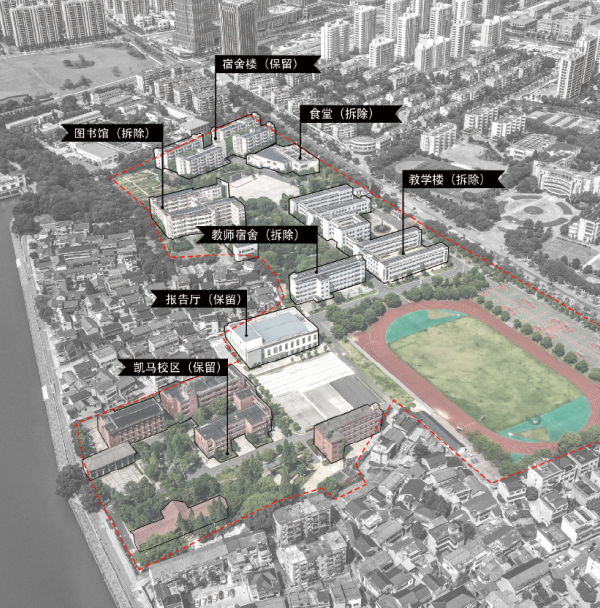Architects:ARCHIKON ARCHITECTS
Area :1466 m²
Year :2022
Photographs :Balázs Danyi
Lead Architects :Csaba Nagy, Pólus Károly, Dorottya Kassai, Krisztina Horváth, Ádám Pásztor, Szilveszter Rády, Zsófia Senánszky
Structural Engineer :ÉKI Terv Kft., Tibor Pintér - ÉKI Terv Kft.
Building Engineering :Agorex Kft., Csaba Makáry - Agorex Kft.
Electrical Engineer :Zone-Plan Kft., György Kapitor - Zone-Plan Kft.
Contractor :Archibona Kft.
Kitchen Technology : Quartisse Kft., Árpád Rátonyi - Quartisse Kft.
Landscape Architecture : Edina Massány
Program / Use / Building Function : Nursery
City : Budapest
Country : Hungary
Designing spaces of care and play for the youth requires a kind of craft and sensibility from the designer which goes beyond developing a one-size-fits-all template. Instead, it is a careful and site-specific recontextualization of knowledge accumulated through research and listening to the users. Zöldike Nursery is a great example of the ways in which the exceptional conditions of the environment informed how principles of designing for children manifest on a specific site.
The area is peculiar in its history of subterranean construction. The mountain of Budafok hides an intricate network of cellars, the oldest of which are attributed to the Romans. It was characteristic for locals (many of whom lived off viticulture) to construct cellars before family homes. It also wasn’t uncommon to live in cave homes carved into the mountain, an easy method of construction due to the structural integrity of limestone. This specificity of the local has become rendered invisible by the suburban sprawl.
A unique condition, however, remains, in which subterranean cellars often have different owners than the land (and buildings) above them. The underground world is sometimes connected to the surface via ventilation flues piercing the landscape. This was also the case of the designated site for the Zöldike Nursery. Although initially, it proved to be an impediment to the process, the renovated flues of the cellars have now become a defining feature of the project. Its concrete rings are perforated with a circular pattern that lends a playful character to the exterior composition and appearance of built elements.
Beyond strengthening the relationship of the site with its history, the massing of the nursery is primarily informed by principles of sustainability, as well as security. The pavilion-style arrangement of the nursery is offset from the street, favoring an introverted sequence of spaces and built elements, which not only creates a range of diverse quality spaces for children to play in, it allows them to do so safely. The buildings on the site have a uniform but whimsical quality, and their layout follows the natural sloping and orientation of the land optimizing solar exposure. The classrooms and their cantilevering canopies are covered with an extensive green roof, thus encircling the private interior playgrounds.
When it came to the articulation of the interior spaces, the architects kept in mind that children’s immediate environments have a profound impact on these early developmental years. In making interior design decisions, it was important that the materials and spatial arrangements promote positive interactions with the built environment. Instead of spending the majority of the budget on an extravagant, public exterior, high-quality materials and finishes were prioritized. Besides the special attention paid to material and color choices, the project contains a series of interesting features that hope to engage the imagination of the children.
For example, the refurbished flues pierce the rubber-clad exterior playgrounds, leaving space for child-initiated and directed play. Another feature is the tactile plinth encircling the building and incorporating the windows in children’s height range, creating introverted nooks for play. The Zöldike Nursery project isn’t a self-serving formalist project, but one that is the direct outcome of the recontextualization of knowledge. At the macro level, when strengthening the relationship of the local youth with the subterranean history of the site, or at the micro level when selecting materials that don’t stifle curiosity.
{{item.text_origin}}

